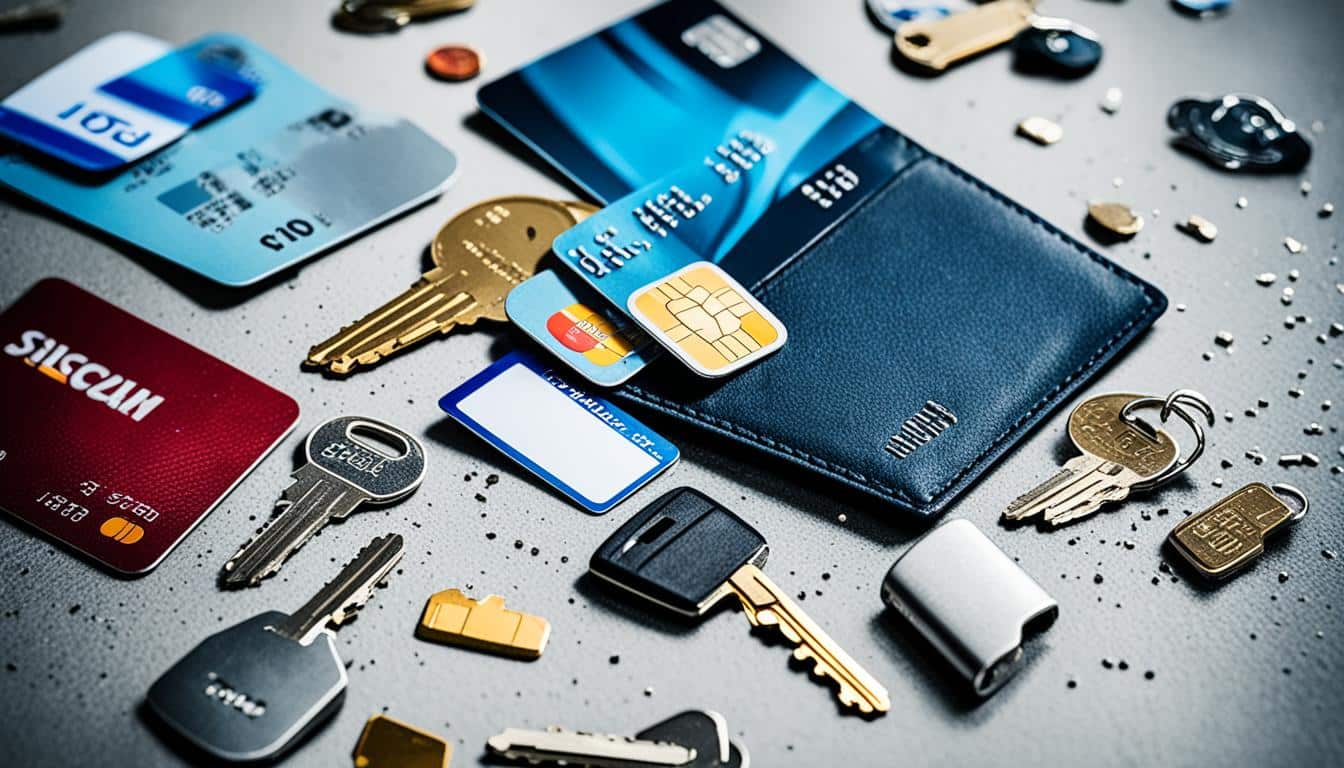If your credit card is lost or stolen, it’s important to take immediate action to safeguard your finances and protect your credit score. Losing a credit card can be a stressful experience, but by following the right steps, you can minimize the impact on your financial well-being. This article will provide you with five essential steps to take if you find yourself in this situation.
Key Takeaways:
- Report the loss or theft of your credit card to your credit card issuer as soon as possible.
- Be prepared to provide necessary identification and transaction information when contacting your credit card issuer.
- Follow up with your credit card issuer and keep documentation of your communication for reference.
- Regularly review your credit card statements for any unauthorized charges.
- Consider checking your insurance coverage to see if it provides protection for credit card theft.
Step 1 – Call Your Credit Card Issuer
If your credit card is lost or stolen, the first step you should take is to call your credit card issuer immediately. This prompt action is crucial in protecting your finances and minimizing the potential damage caused by unauthorized charges.
To report a lost or stolen credit card, look for the contact information of your credit card issuer on your monthly statement or the issuer’s official website. By contacting them promptly, you can limit your liability for any unauthorized charges. Waiting too long may increase the risk of fraudulent transactions and financial loss.
Note: Taking immediate action is vital when you realize your credit card is missing. Whether misplaced or stolen, acting promptly helps to contain any potential incidents and safeguard your financial well-being.
By promptly notifying your credit card issuer about the loss or theft, you prevent unauthorized individuals from using your card and racking up unauthorized charges. The issuer will then take appropriate measures, such as canceling your current card, blocking any transactions, and issuing you a new card with a different account number.
Remember, reaching out to your credit card issuer is the first line of defense when dealing with a lost or stolen credit card. By calling them immediately, you can mitigate potential risks and protect your finances from unauthorized charges.
Image: A visual representation of a lost or stolen credit card, reinforcing the importance of immediate action.
| Advantages of Calling Your Credit Card Issuer | Disadvantages of Delaying the Call |
|---|---|
| Immediate assistance in canceling lost or stolen cards | Increased risk of potential unauthorized charges |
| Quick resolution of fraudulent transactions | Possible negative impact on credit score |
| Issuance of a new card with a different account number | Inconvenience of dealing with unauthorized charges |
Example: Advantages in Detail
- By contacting your credit card issuer immediately, you can promptly cancel the lost or stolen card. This prevents unauthorized individuals from using the card and incurring charges on your account.
- Your credit card issuer will take quick action to block any unauthorized transactions and resolve issues related to fraudulent charges. This can save you from the inconvenience of dealing with extensive paperwork and disputes.
- Once your credit card issuer cancels the lost or stolen card, they will issue you a new credit card with a different account number. This helps ensure that any potential fraudsters do not have access to your account going forward.
Example: Disadvantages in Detail
- Delaying the call to your credit card issuer increases the risk of unauthorized charges on your account. The longer you wait, the more time fraudsters have to exploit your card and make fraudulent transactions.
- A delay in reporting a lost or stolen credit card could potentially impact your credit score. If unauthorized charges are made on the card and left unresolved, they could negatively affect your creditworthiness and financial reputation.
- Not calling your credit card issuer immediately can lead to inconvenience when dealing with unauthorized charges. Resolving these charges can result in time-consuming disputes and extra paperwork.
Step 2 – Get Prepped with Information
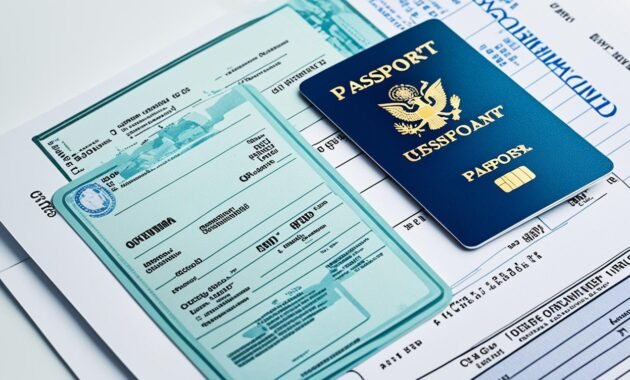
When contacting your credit card issuer to report a lost or stolen credit card, it’s important to be prepared with the necessary information to verify your identity. This step is crucial to ensure that the card issuer can take appropriate action to protect your account and issue a new credit card.
Identity verification is an essential part of the process to prevent any unauthorized individuals from accessing your account or making fraudulent transactions. By providing accurate information, you can help expedite the resolution and minimize the risk to your finances.
When you reach out to your credit card issuer, be ready to provide the following details:
- Your name: Provide your full legal name as it appears on the credit card.
- Your address: Give the residential address associated with your credit card account.
- Your Social Security number: This unique identifier helps confirm your identity and protect against fraudulent activity.
Remember, it’s important to exercise caution and ensure that you share this sensitive information only with authorized representatives of your credit card issuer. Be wary of sharing personal information over the phone unless you initiated the call or are certain of the legitimacy of the request.
In addition to verifying your identity, the credit card issuer may ask for specific details related to the loss or theft of your card. They may inquire about:
- The date when your credit card was lost or stolen
- Any suspicious transactions you have noticed on your credit card statement
By sharing this information, you help the credit card issuer gather crucial insights to investigate potential fraudulent activity. They will take the necessary steps to cancel your current card and issue a new credit card with a fresh account number.
Step 3 – Follow Up and Keep Records
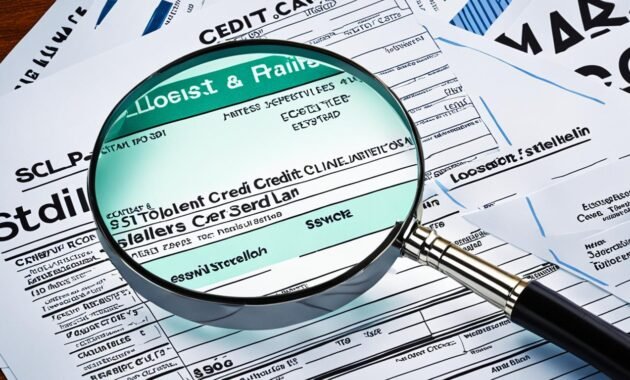
After reporting your lost or stolen credit card, it’s important to follow up with your credit card issuer to ensure that your request is processed and documented properly. This step will help you stay informed about the progress of your case and provide you with a record of the communication.
To follow up with your credit card issuer, you can send a letter or email, including your account number and the details of when and how you reported the loss. This will help the credit card issuer locate your case quickly and provide the necessary assistance.
Pro Tip: Notify your credit card issuer promptly to prevent any unauthorized charges and protect your finances.
By keeping a copy of your communication, you have documentation that can serve as evidence if needed. This record can also help resolve any discrepancies that may arise during the process.
Remember to provide accurate and complete information to your credit card issuer during your follow-up. This will ensure that all the necessary details are accounted for and processed correctly, helping expedite the resolution of your case.
| Benefits of Following Up | Tips for Keeping Records |
|---|---|
|
|
Following up and keeping records may seem like an extra step, but it can make a significant difference in resolving your lost or stolen credit card case effectively. It provides additional accountability and ensures that you have the necessary documentation to support your claim.
Step 4 – Check Your Credit Card Statement
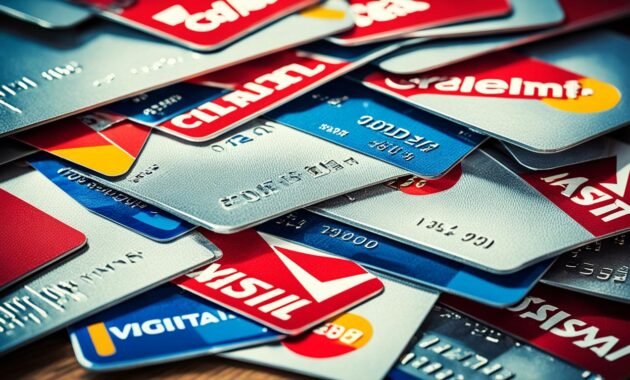
After reporting your credit card as lost or stolen, it’s crucial to carefully review your credit card statement. Take the time to go through each charge and transaction to ensure there are no fraudulent or unauthorized activities. Look for any charges that you don’t recognize or suspect to be fraudulent.
Unauthorized transactions can have a detrimental impact on your finances and credit score, so it’s essential to act swiftly if you identify any suspicious activity. Remember, the sooner you report unauthorized transactions to your credit card company, the better chance you have of minimizing the impact on your financial security.
If you notice any fraudulent charges or unauthorized transactions, it’s important to contact your credit card company immediately. Provide them with the necessary information about the suspect charges and follow their instructions to dispute and resolve the issue. Taking quick action can help protect your financial well-being and maintain the integrity of your credit history.
To summarize, checking your credit card statement diligently and promptly reporting any fraudulent charges or unauthorized transactions to your credit card company is essential in safeguarding your financial security and creditworthiness.
Step 5 – Check Your Insurance Coverage
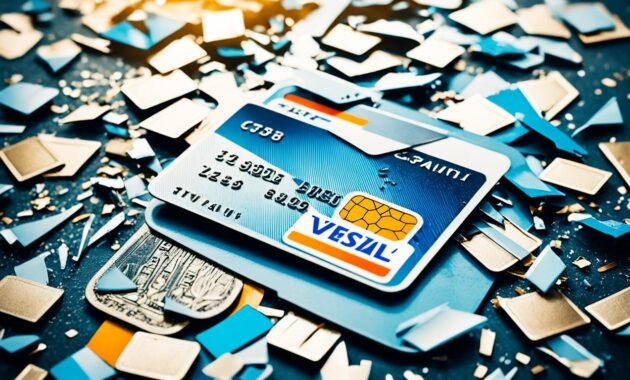
When dealing with the aftermath of credit card theft, it’s essential to explore the potential insurance coverage options available to you. Many homeowner’s and renter’s insurance policies provide coverage for credit card theft, offering an added layer of protection for your financial well-being.
Start by reviewing your insurance policy to determine if it covers your liability for unauthorized charges resulting from credit card theft. While federal law limits your liability to $50, additional coverage through your insurance policy can provide further financial security and peace of mind.
If your policy does not currently cover credit card theft, consider reaching out to your insurance provider to inquire about adding coverage for lost or stolen cards. This ensures you have comprehensive protection against potential financial losses arising from credit card theft.
By having the right insurance coverage in place, you can mitigate the impact of credit card theft and protect yourself financially. It’s important to remain proactive and regularly evaluate your insurance needs to ensure you’re adequately covered in the event of unforeseen circumstances.
Preventing Future Lost or Stolen Credit Cards
To minimize the risk of losing or having your credit card stolen in the future, it’s important to take certain precautions. By following these steps, you can safeguard your finances and protect your credit card information:
- Carry only the cards you need: Limit the number of credit cards you carry with you to reduce the chances of losing them. Keep only the cards you regularly use in your wallet or purse, and leave the rest in a safe place at home.
- Cut up old credit cards: Before discarding old credit cards, make sure to cut them up into small pieces. This prevents anyone from finding and using these cards if they end up in the wrong hands.
- Keep track of your cards: Stay vigilant and keep an eye on your credit cards at all times. Be aware of where your cards are and avoid leaving them unattended in public places.
- Monitor your credit card statements: Regularly review your credit card statements to detect any unauthorized or suspicious transactions. If you notice any unfamiliar charges, report them to your credit card issuer immediately.
- Guard your account number: Be cautious when sharing your credit card information over the phone. Only provide your account number when you initiate the call to a trusted and verified source.
Following these preventive measures will help minimize the chances of a lost or stolen credit card, protecting your finances and ensuring peace of mind.
| Preventive Measures | Benefits |
|---|---|
| Carry only the cards you need | Reduces the risk of losing multiple cards |
| Cut up old credit cards | Prevents misuse of discarded cards |
| Keep track of your cards | Minimizes the chances of misplacing or losing cards |
| Monitor your credit card statements | Early detection of unauthorized transactions |
| Guard your account number | Protects against fraudulent use of your information |
Remember, prevention is always better than dealing with the consequences of a lost or stolen credit card. Take these precautions to keep your finances secure and enjoy worry-free credit card usage.
What to Do if You Find Your Lost Credit Card
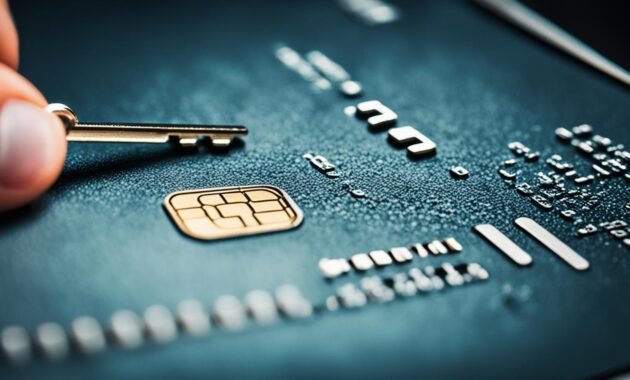
If you happen to find your lost credit card after reporting it, there are a few steps you can take to unlock it and start using it again. Some credit card issuers provide the option to temporarily lock or freeze your card while you search for it, offering an added layer of security. Unlocking the card will restore its functionality, allowing you to resume making purchases and transactions.
However, it’s important to note that if you suspect any unauthorized activity or charges on the card while it was lost, you should immediately contact your credit card issuer. They will be able to investigate and take appropriate action to protect your account and finances.
| Steps to Unlock Your Lost Credit Card |
|---|
| 1. Contact your credit card issuer |
| 2. Verify your identity and provide necessary information |
| 3. Request to unlock your card |
| 4. Follow any additional instructions from your credit card issuer |
By taking swift action and following the necessary steps, you can regain access to your credit card and resume using it responsibly. Remember to stay proactive in monitoring your credit card statements for any suspicious activity and to report any concerns promptly to your credit card issuer.
Reporting a Stolen Credit Card and Identity Theft

If your credit card has been stolen, it is crucial to act quickly and take the necessary steps to protect yourself from identity theft and potential credit card fraud. In addition to notifying your credit card issuer about the incident, filing a police report can provide you with additional protection and assist in the investigation of the crime.
Reporting the theft to the police helps create an official record of the incident, which may be required by your credit card company or insurance provider. It also aids in preventing further misuse of your stolen credit card or personal information by law enforcement agencies.
Identity theft is a serious crime that can lead to significant financial and emotional distress. If you suspect that your stolen credit card has resulted in identity theft, it is important to report the incident to the Federal Trade Commission (FTC) as soon as possible. The FTC can assist you in creating an identity theft plan, providing guidance on steps to take to minimize the impact of the theft.
“Filing a police report is an essential step in reporting a stolen credit card and protecting yourself against identity theft. It creates an official record of the incident and establishes your due diligence in safeguarding your personal information.” – Identity Theft Expert
To further protect yourself from identity theft, consider taking the following preventive measures:
- Minimize the personal information you carry with you on a daily basis. Only carry the necessary identification cards and documents.
- Consider placing a credit freeze on your credit reports, which restricts access to your credit information and prevents potential identity thieves from opening new accounts in your name.
- Monitor your credit reports and financial statements regularly to spot any unauthorized activities or suspicious transactions.
- Explore identity theft protection services that offer additional layers of security and monitoring for your personal information.
By promptly reporting the theft of your credit card to the police and taking proactive steps to prevent identity theft, you can actively safeguard your financial well-being and minimize the potential damages caused by credit card fraud and identity theft.
If you realize your credit card is missing or stolen, it’s crucial to act quickly to prevent credit card fraud and minimize any potential negative impact on your credit profile. Immediately contact your card issuer to report the card as lost or stolen and request a replacement card. Many credit card issuers have zero-liability policies, but you should also review your credit card statement for any fraudulent charges and report them to your card issuer.
The Fair Credit Billing Act limits your liability for unauthorized charges, but swift action is necessary to protect yourself from credit card theft. Upon contacting your card issuer, they will freeze your lost credit card and send you a replacement card with a new card number to replace the lost or stolen one. While waiting for your replacement card to arrive, you can use other credit cards if you have multiple credit cards or find alternative ways to make purchases without jeopardizing your credit.
By promptly reporting a lost credit card and taking necessary precautions, you can help protect yourself from credit card fraud and ensure minimal impact on your credit profile.
Also Read : Can You Buy A Money Order With A Credit Card?
Conclusion
Experiencing the loss or theft of a credit card can be a stressful situation, but taking immediate action is crucial to protect your finances and credit score. By following the steps outlined in this article, you can minimize the impact of a lost or stolen credit card.
First and foremost, report the loss or theft to your credit card issuer as soon as possible. This immediate action will limit your liability for any unauthorized charges and prevent further fraudulent transactions. It’s important to have the contact information of your credit card issuer readily available, either on your credit card statement or online.
In addition to reporting the loss or theft, regularly monitor your credit card statement for any suspicious charges. By doing so, you can detect and report any unauthorized transactions promptly. Consider checking your credit card statement at least once a month to stay vigilant.
Furthermore, considering insurance coverage for credit card theft can provide an extra layer of protection. Some homeowner’s and renter’s insurance policies may have provisions for credit card theft. Review your insurance policy to see if it covers your liability for unauthorized charges and consider adding coverage for lost or stolen cards if available.
By taking immediate action, reporting the loss or theft, monitoring your credit card statement, and considering insurance coverage, you can effectively protect yourself from the consequences of a lost or stolen credit card. Remember to also implement preventative measures such as safeguarding your credit cards, monitoring your accounts, and avoiding sharing sensitive information. By being proactive, you can minimize the risk of future incidents and ensure the safety of your financial information.
FAQs
Q: What steps should I take if my credit card is lost or stolen?
A: If you lose your credit card or suspect it has been stolen, you should contact your card issuer immediately to report it. This will help prevent any unauthorized charges on your account.
Q: How can a lost credit card affect my credit?
A: Losing your credit card can potentially impact your credit score if unauthorized charges are made before you report it. It’s important to monitor your credit card activity regularly to detect any suspicious transactions.
Q: How can I replace a lost credit card?
A: To replace a lost credit card, you can request a replacement card from your credit card company. They will issue you a new card with a new card number to ensure the security of your account.
Q: Should I lock my credit card if it’s lost or stolen?
A: Yes, it’s advisable to lock your credit card to prevent any further unauthorized use. Most credit card issuers offer the option to lock your card temporarily until you locate it or receive a replacement.
Q: What should I do if I find my lost credit card after reporting it?
A: If you find your lost credit card after reporting it as lost or stolen, you should contact your card issuer immediately to inform them. They may advise you to destroy the old card and activate the replacement card they sent.
Q: Can I request a replacement card with the same account number?
A: In most cases, when you request a replacement card for a lost or stolen credit card, the issuer will provide you with a new card number for security reasons. This helps protect your account from potential fraud.
Q: How does credit card fraud impact my credit score?
A: Credit card fraud can negatively affect your credit score if unauthorized charges are not resolved promptly. It’s essential to report any fraudulent activity on your credit card to maintain the integrity of your credit history.
Source Links
- https://lifelock.norton.com/learn/credit-finance/what-to-do-if-you-lose-a-credit-card
- https://www.forbes.com/advisor/credit-cards/what-to-do-when-you-lose-your-credit-card/
- https://www.creditkarma.com/credit-cards/i/lost-credit-card
